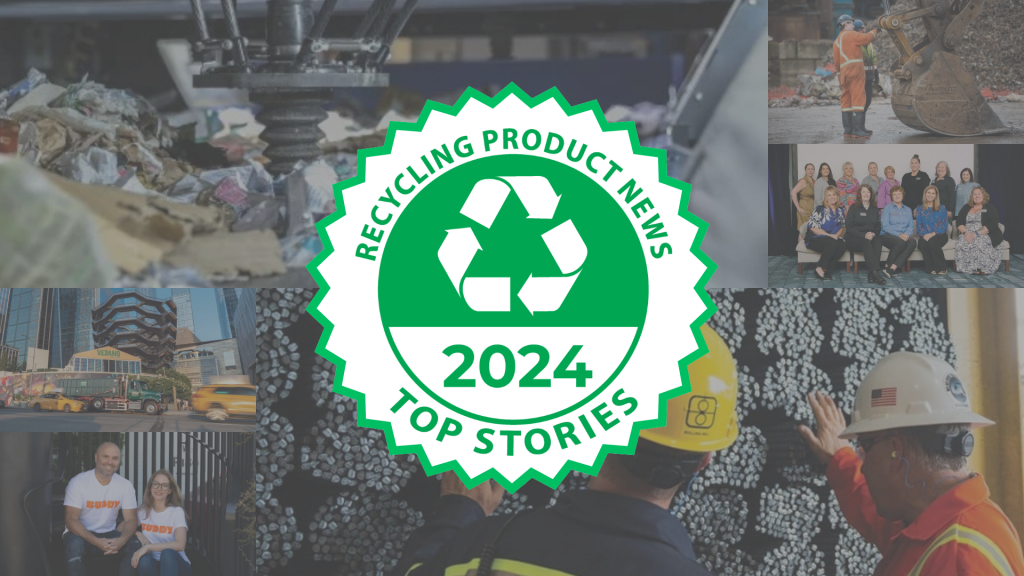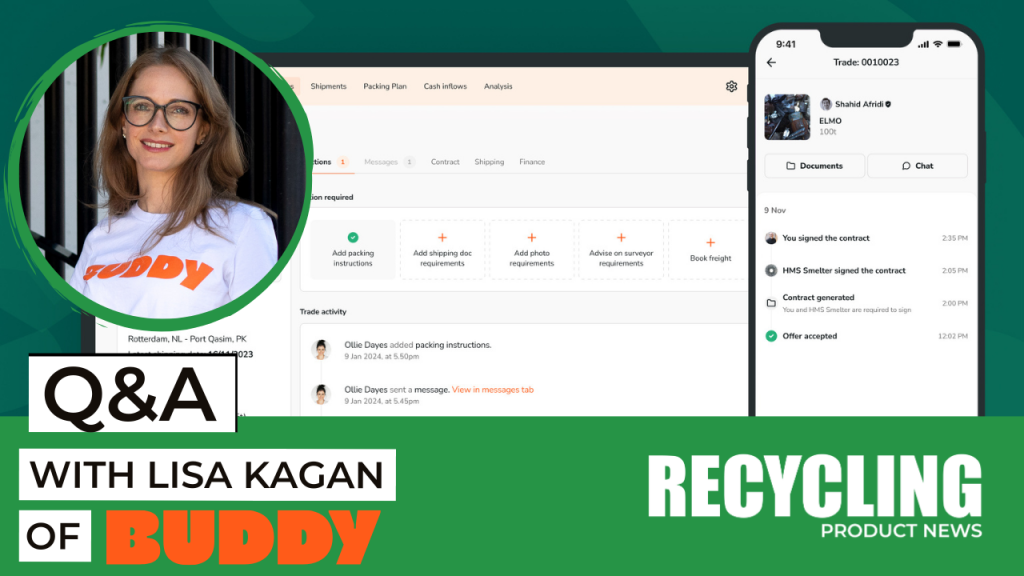Recycling round-up: key stories and insights from 2024
Explore 2024’s most critical recycling industry issues through our top interviews and articles

This year was a busy one, and to help make sure you don't miss out on our most popular stories from 2024, we've gathered them all into one place. Aerosol, iridium, textiles, and auto recycling were all examined in-depth; market trends for commodities were investigated; and multiple industry experts shared their insights across all sectors. Other popular articles from this year dive into the development of intelligent MRFs and emerging technologies in the metals recycling industry.
In no particular order, check out our top 10 articles from 2024 below.
8 ways AIM Recycling is combatting labour shortages in metal recycling
The scrap metal recycling industry has long faced a shortage of skilled labour, negatively affecting both operational efficiency and processing capacity at recycling facilities. AIM Recycling is a significant player in ferrous and non-ferrous metal recycling and has over 4,000 employees at more than 135 sites worldwide. To understand how this metal recycler is tackling the labour issue, Editor Slone Fox spoke with Director of Marketing Corey Cooper and Talent Acquisition Manager Ryan Melanson to get their perspectives.
Learn about the eight steps AIM Recycling is taking to hire and keep top talent here.
Q&A: New York's Commercial Waste Zones mark a new era in waste for Interstate Waste Services
Back in 2019, New York City overhauled its waste management system by introducing the Commercial Waste Zones (CWZ) initiative. Interstate Waste Services (IWS) recently secured 14 out of 20 zones in NYC and is one of just five providers authorized for city-wide containerized waste collection. Editor Slone Fox caught up with Josh Haraf, market vice president of New York City for IWS, to discuss sustainability, and how the CWZ initiative is reshaping the future of waste management in one of the world's busiest cities.
Read about IWS' growth and sustainability strategies here.
Richmond Steel Recycling drives innovation and efficiency with B.C.'s only large-scale auto shredder
During the late sixties and early seventies, the environmental movement was gaining momentum, and more people began to advocate for sustainable waste management practices.
Recognizing this growing need, British Columbia-based Richmond Steel Recycling adapted to the changing landscape of metal recycling by installing a shredder and making sustainability a cornerstone of its operations. Editor Slone Fox explores the history of B.C.'s only large-scale auto shredder in this story.
Read about how Richmond Steel Recycling played a part in the creation of modern metal recycling in the province here.
Recovered paper or recycled plastic packaging - which one carries more weight?
Sustainable packaging solutions have gained popularity in a worldwide shift to reduce carbon emissions and raise the consumption of "greener" products. According to a report by Statista, paper and cardboard (paperboard) were the most widely used packaging materials at 33 percent in 2019. Flexible and rigid plastics followed at 25.5 percent and 18.7 percent, respectively. In this story, recycled materials editor at Davis Index, Huban Kasimi, explores the challenges of switching from plastic to more sustainable paper packaging.
Learn about the opportunities and challenges in moving from plastic to recyclable packaging here.
Q&A: Anna Tompkins discusses opportunities for women in the metal industries
The Association of Women in the Metal Industries (AWMI) equips women with tools and opportunities like mentorship programs, educational resources, and networking events for building professional relationships. Since its conception in 1981, AWMI has helped women break barriers in the metal industries. Today, AWMI has built a diverse membership spanning numerous sectors within the metal industries, from transportation to scrap metal recycling. Editor Slone Fox talked with Anna Tompkins, vice president of AWMI, to discuss the organization's mission and impact.
Learn more about Anna Tomkins' professional journey and the work of the AWMI here.
LRS facility reshapes how recyclables are processed in Chicago
The Exchange, LRS's latest material recovery facility, is reshaping recycling practices across the Midwest. The Exchange is designed to minimize environmental impact. Operating at a capacity of 25 tons of recyclables per hour, the facility is already making an impact. Since 2013 LRS has delivered comprehensive services to thousands of residential, commercial, and construction customers across eight states. In this article, Senior Writer Meghan Barton LRS goes in-depth about how LRS has rapidly expanded its reach and impact.
Read about the variety of ways LRS is reshaping the recycling landscape in eight states here.
Q&A: Machinex CEO Chris Hawn discusses the modern MRF
With advancements in automation, robotics, and data analytics, MRFs have become more capable than ever of sorting and separating materials. Through process optimization and strategic investments in equipment, modern MRFs are continuously evolving to meet the demands of a rapidly changing recycling environment. Editor Slone Fox caught up with Chris Hawn, CEO of Machinex, to delve into the factors influencing MRF operations, and key challenges and opportunities on the horizon for the recycling industry.
Read about the most notable trends and complications shaping the waste management industry today here.
Q&A: John Sacco is changing the narrative around metal recycling
Recyclers' crucial role as raw material manufacturers is rarely recognized. At the heart of the issue lies the misunderstanding that recycled materials, particularly scrap metal, lack worth, when in reality they're precious commodities. Editor Slone Fox sits down with John Sacco, president and owner of Sierra International Machinery, to discuss key topics like regulatory challenges and how the second season of Sierra's Repurposed docuseries is reshaping public perceptions of the metals recycling sector.
For a more accurate understanding of the metal recycling industry, check out the story here.
Q&A: How Buddy is bridging tech and trust in the scrap metal industry
Scrap metal companies are looking for tools that streamline workflows, centralize data, and support relationship-based trading. Recycling often operates around the clock with fluctuating prices, intricate logistics, and tight margins. Lisa and Stuart Kagan, creators of Buddy, have witnessed these pain points firsthand. Buddy is a marketplace, and a comprehensive solution to streamline operations across trading and admin. Editor Slone Fox spoke with Lisa Kagan to learn more about how Buddy is solving longstanding issues in the industry.
Read about their scrap metal marketplace conversation here.
What to expect for the recycled plastics industry in 2025
Recycled plastics quietly emerged as one of the commodities areas to watch during 2024. This year was a mixed bag, with some grades of recycled plastic seeing a rebound, while many others have continued to struggle. These conditions have set the stage for a very interesting 2025 for the recycled plastics space. With that in mind, senior editor at Independent Commodity Intelligence Services Emily Friedman explored some of the most pressing questions that surround the recycled plastics industry as the new year gets underway.
Read about Friedman's insights and thoughts for the 2025 economic environment here.











